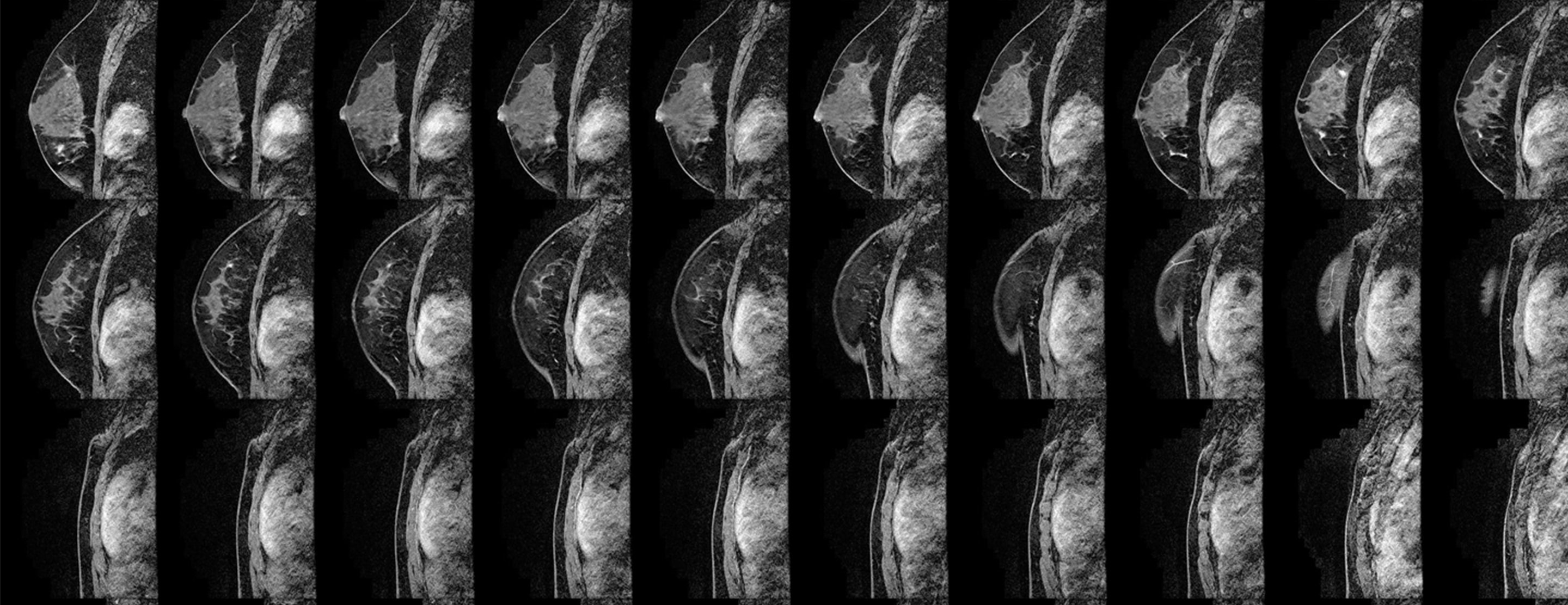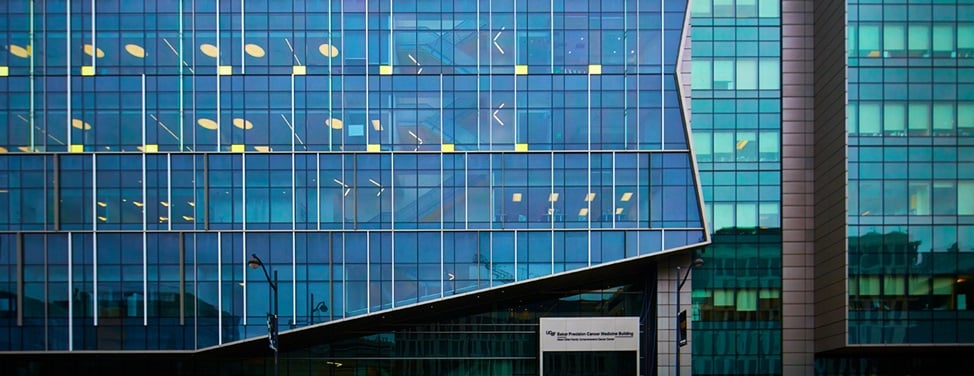
Biopsy for Breast Cancer Diagnosis: MRI-Guided Core Biopsy
If an MRI detects an abnormality in your breast that can't be seen on a mammogram or with ultrasound, your doctor may recommend an MRI-guided core biopsy. This is less invasive than a surgical biopsy and causes little to no scarring. During the procedure, the doctor uses MRI to locate the abnormal tissue and take a small sample for evaluation.
Preparation
If you take medications or supplements, ask your doctor whether you should stop taking them before the biopsy. This includes over-the-counter drugs, such as aspirin, and herbs used for health purposes. Also, tell your doctor if you may be pregnant.
On the day of your appointment, please follow these guidelines:
- Don't wear powder, deodorant, lotion or perfume under your arms or on your breasts.
- Don't wear jewelry unless it can be quickly and easily removed.
- Arrive 30 minutes before your appointment to allow time for check-in, changing and preparation.
Procedure
The procedure takes from two to three hours, most of which involves preparation, setup and aftercare. The biopsy itself takes less than one minute.
As for any MRI scan, you remove your clothes – everything but underwear – and put on a hospital gown, plus provided pants and socks. You also need to remove anything metal – including jewelry, watches and hearing aids – because the MRI machine contains powerful magnets. An IV catheter is placed in one arm, so that we can inject contrast dye (a harmless substance that improves the clarity of the images.
You stay awake during the procedure, lying facedown on a padded MRI scanner table that has a cushioned opening for your breast. The opening is surrounded by a device called a breast coil that holds the breast in place and works with the machine to create images. The MRI technologist takes images for five to 10 minutes to precisely locate the abnormality. You need to remain very still during this part of the procedure.
Next, the radiologist cleans your breast and injects a local anesthetic, which may sting for a few seconds. Once the breast is numb, the radiologist makes a very small incision and, guided by the MRI images, inserts a thin needle or sheath into the suspicious area. More images are taken to confirm the location. The radiologist then inserts a special biopsy needle that can take several tissue samples at once while delivering numbing medication. This isn't painful, but you may feel slight discomfort, light pressure or a pulling sensation. The biopsy samples are sent to the pathologist for evaluation.
Next, the radiologist places a tiny metal clip in your breast to mark the biopsied spot. You won't be able to feel the clip, but should you need surgery later, it will help the surgeon find the correct spot. Even if surgery isn't necessary, the clip will help your doctor monitor the area on future mammography and MRI exams.
The radiologist applies pressure to the incision to stop bleeding and minimize bruising, then covers the wound with adhesive skin closure strips. Finally, a gentle mammogram (using minimal compression) is taken to document where the clip was placed.
Recovery
Your breast may be sore and tender for several days. The discomfort is typically relieved with over-the-counter pain medications, such as Tylenol (acetaminophen). Be sure to follow your care team's instructions on which activities to avoid while you heal, how to care for the incision and which medications are safe to take for pain.
There's a slight risk of infection or excessive bleeding after the procedure. Please call Breast Imaging or the Breast Care Center immediately if you experience any of the following symptoms:
- Swelling that worsens or doesn't go away
- Continued bleeding
- A fever above 101 degrees Fahrenheit (38.3 degrees Celsius)
- Pain that doesn't respond to Tylenol or other approved non-aspirin pain relievers
UCSF Health medical specialists have reviewed this information. It is for educational purposes only and is not intended to replace the advice of your doctor or other health care provider. We encourage you to discuss any questions or concerns you may have with your provider.










